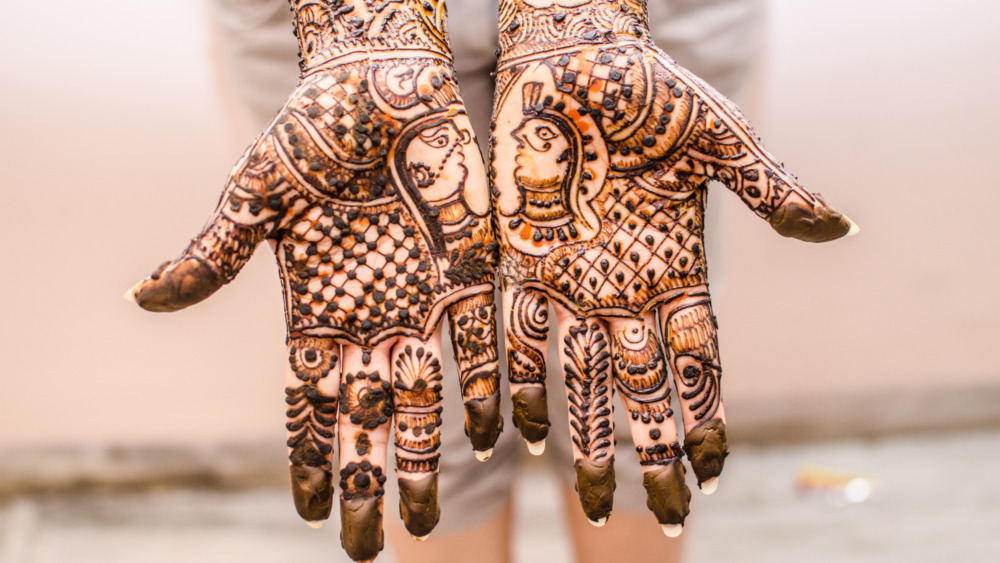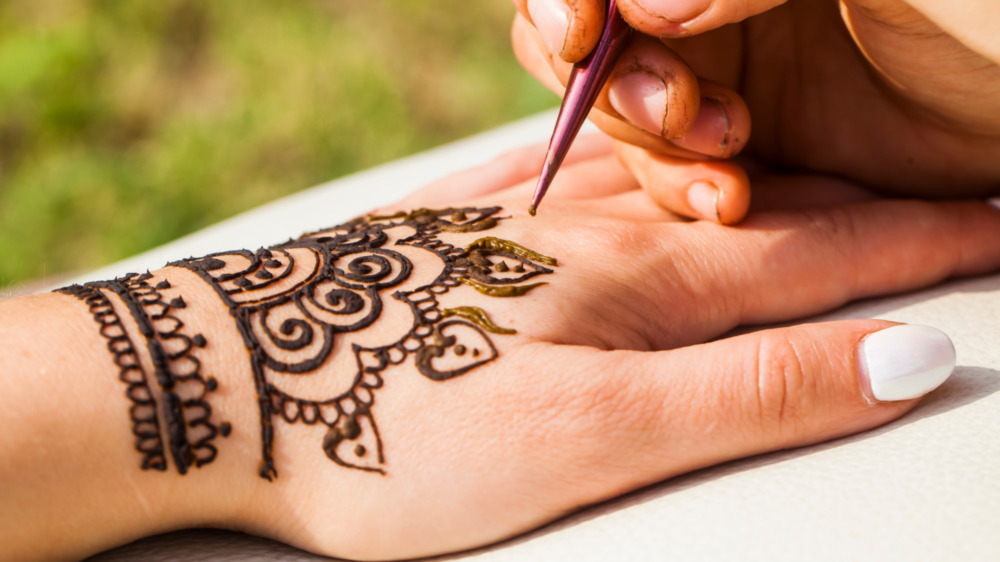Here's Why You Should Think Twice About Getting A Henna Tattoo
If you've ever attended a traditional Indian celebration like an engagement or a wedding, you may have seen the intricate reddish-orange designs on the hands and arms of the participants. These designs, known as mehndi in India, are made from henna paste, and with the popularity of the body art trend, you can now find artist booths almost everywhere. There are even DIY kits at your local drug store. According to her culture, the art of using henna to stain the skin has been safely used for centuries in Africa, Pakistan, India, and the Middle East. But recently, the trend of black ink henna designs has raised concern about whether or not the ancient art form is dangerous to wear (via PopSugar).
Traditional henna paste is made from the henna tree which is actually a shrub that is native to North Africa. In the past, it was applied to the body as protection from the heat because of its cooling effect on the skin. Because of the temporary stain it leaves on the skin, people began using henna paste for decorative purposes.
Now it is used to symbolize prosperity and protection, and can often be seen at celebratory occasions. And while henna tattoos only stain the surface of the skin instead of penetrating deep into it like a real tattoo, you should still be wary of what's going on top of your skin (via her culture).
You could be in danger if you see this
As PopSugar notes, the leaves of the henna plant are usually mixed with water, oils, and lemon juice to form a thick greenish-brown or dark green paste. After letting the paste dry for a full day, it's removed to reveal a reddish stain. Traditional henna is safe for most people to use on their skin without any problems. So what happens if the paste that's being used to stain your skin is black instead?
According to the FDA, there have been a number of consumers that have reported bad reactions that have required hospitalization after using temporary black henna tattoos, including the report of a 5-year-old girl developing a severe skin rash almost two weeks after getting one.
So why are henna tattoos causing problems all of the sudden? The difference between traditional henna and the newer black henna is an ingredient called p-phenylenediamine (PPD). This coal-tar hair dye ingredient is used to make the henna ink darker. PPD is known to cause severe skin reactions, and the FDA does not allow it in any cosmetics for the skin, yet some artists still use it. If you suspect the henna artist that's applying your tattoo is using black henna, consider going somewhere else or skipping the body art all together (via PopSugar).

